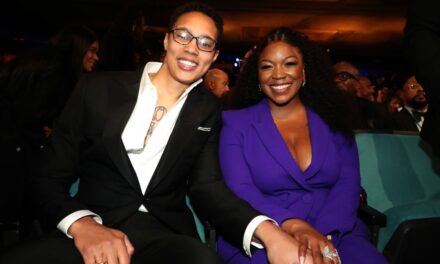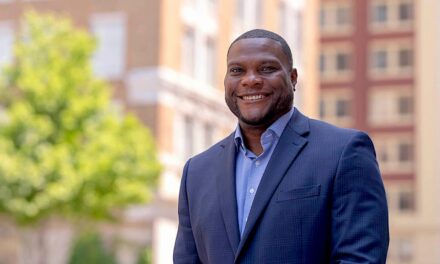
Reading time: 2 minutes Jennifer Pagala Barnett (back row, second from left) at the National Science Foundation ERC Biennial Meeting in September 2024.
Jennifer Pagala Barnett (back row, second from left) at the National Science Foundation ERC Biennial Meeting in September 2024.
The University of Hawaiʻi at Mānoa is part of a multi-university research team that is looking for climate friendly alternatives to harmful chemical refrigerants. One UH Mānoa member is playing a critical role in the project by ensuring diversity and inclusion efforts by researchers and students participating in the effort.

Jennifer Pagala Barnett, associate director of the UH Mānoa Office of Student Equity, Excellence and Diversity, is focusing on recruiting and retaining underrepresented groups in STEM fields, and to increase participation at all levels for Native Hawaiians and Pacific Islanders.
“It is a privilege to represent UH Mānoa and to serve as the Pillar for Diversity Culture in Inclusion for EARTH—we have much to share about what diversity means and looks like in our communities,” Barnett said. “I hope that my unique perspective, shaped by my experiences with our diverse students and staff, can enhance our contribution to the ERC (Engineering Research Center).”
Creating opportunities

Barnett is overseeing recruiting initiatives such as ENRICH, which stands for “endeavor and recruiting in cooling and heating,” to create opportunities for undergraduate and graduate students, as well as mentoring for new faculty and opportunities for more involvement by faculty mentors. She is also implementing accountability measures to ensure the center maintains its commitment to diversity throughout the project’s duration. These might include diversity related trainings and workshops, as well as recruitment efforts through affinity groups in national professional networks, such as AISES (Advancing Indigenous People in STEM), OSTEM (Out in Science, Technology, Engineering, and Mathematics), NSBE (National Society of Black Engineers), SWE (Society of Women Engineers) and others.
“The chance to discuss diversity in areas where I haven’t previously engaged, particularly within scientific fields that have significant potential for increased diversity, offers a fresh perspective and new opportunities,” Barnett said. “My primary goal is to ensure that all voices are included in this conversation. Itʻs exciting to think the investment we make in people will have a lasting impact moving forward and enhance our influence in the HVAC industry.”
Along with UH, ERC EARTH includes teams from University of Notre Dame, Lehigh University, University of South Dakota, University of Maryland and project lead University of Kansas. Barnett will work with the universities to provide opportunities for underrepresented students and faculty mentors in their own communities.
More about ERC EARTH
The National Science Foundation (NSF) awarded $26 million to establish the NSF Gen-4 ERC Environmentally Applied Refrigerant Technology Hub (EARTH), with UH Mānoa playing a crucial role in addressing the environmental impact of hydrofluorocarbons used in cooling systems.
The project seeks to develop a “sustainable refrigerant lifecycle” by reducing hydrofluorocarbon emissions, creating safer replacement refrigerants, and improving the energy efficiency of heating, ventilation, air conditioning, and refrigeration systems, which currently account for nearly 10% of global greenhouse gas emissions. The group was selected from among hundreds of other proposed centers following a highly competitive two-year review process. NSF currently supports just 15 ERCs in advanced manufacturing, energy and environment, health and infrastructure.
Members of ERC EARTH will host an information session on October 30 from 3:30 to 5 p.m. at the UH Mānoa Marine Sciences Building 100. Visit this website for more information.




